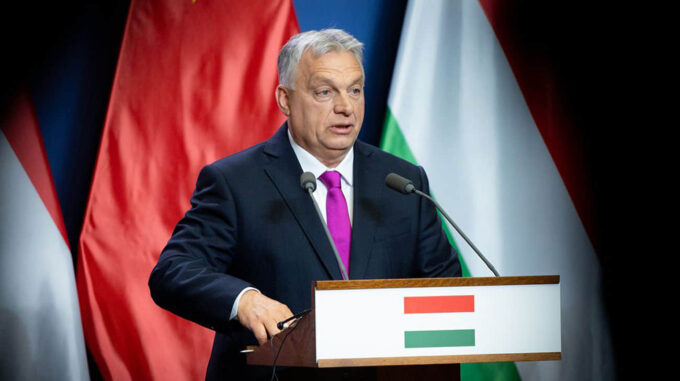Division in the Heart of Europe: Half of Hungarian Society Discontented with Viktor Orbán’s 15-Year Leadership

Hungary is experiencing a period of deep internal conflicts and divergence of public opinion regarding the rule of its longest-serving leader – Prime Minister Viktor Orbán. A recent updated survey, conducted recently and published by the news agency Telex, referencing data from "EU Observer," indicates that over half of the country's population critiques his activities and considers his period in office to be negative or controversial. According to the survey results, 50% of respondents view Orbán’s influence and government as somewhat or entirely negative concerning the country's development. Meanwhile, only 39% expressed a more positive view of his leadership. It is noteworthy that among supporters of the ruling Fidesz party, the picture is quite different: nearly 9 out of 10 support the prime minister and regard his governance as positive and productive. Only about 1% of their party members perceive the country's situation negatively. However, the position of opposition forces is fundamentally different – 87% of their supporters describe Orbán’s policies as negative, with just 1% seeing them as highly positive. Voters in this category believe that during this time, the government has significantly worsened the economic situation and the standard of living in the country. Sharp differences also appear across age groups: older citizens (over 60) tend to have a sympathetic attitude toward Orbán and regard his work positively, whereas negative opinions are increasingly prevalent among young people under 25, with nearly 60% considering his rule to be negative and destructive. Questions about the state of democracy and freedom in the country also reveal significant divides. According to the survey, 40% of Fidesz supporters believe that democracy has improved during Orbán’s tenure. Most opposition voters, however, do not share this view – only 2–3% in this group think the situation has improved, with the majority convinced that democracy has deteriorated and become more authoritarian. Regarding personal well-being, opinions are again sharply divided. Ordinary respondents voted in two extremes: 45% of Fidesz supporters believe that the standard of living has improved compared to 15 years ago, while two-thirds of opposition supporters dismiss this and point to worsening economic problems. Unsurprisingly, most respondents think that it is possible to change the current leadership through democratic processes, though trust in this possibility has waned over time. Particularly noteworthy are the data concerning social and political climate. 65% of respondents state that under Orbán’s leadership, the government is likely enriching the wealthy and securing support through political connections. Such views are shared by a significant portion of Fidesz supporters — 45% admit that political acquaintances greatly assist in career advancement and obtaining privileges. As for the prospects of policy change and a shift of power, most respondents believe that it is unlikely Orbán and his team will find a path to renewal through democratic mechanisms. Only about one-third of the Ukrainian respondents see this as a realistic possibility. Meanwhile, among opposition supporters — especially members of the Tisa Party — optimism has risen from a bleak 45% to 54%, providing hope for a future political change. The backstory of this political landscape is no less tense. Last year, Hungarians mass-protested against several government reforms that provoked public outrage and drew criticism from the European Union. A bill targeting independent media and NGOs, along with a law banning LGBT pride events, sparked large-scale protests in Budapest and other cities. Opposition groups and civic activists sharply criticized the new norms, which restrict the rights of the LGBT community and enshrine limitations for this minority in the Constitution. In addition to protests against these laws, parliament passed amendments to the Basic Law, which also triggered a wave of outrage. Furthermore, the government intensified its efforts to control the finances of civil organizations by placing them on a "blacklist," following models from countries like Russia and Belarus. Under these new laws, the Department for Sovereignty Defense can designate organizations as threats if they receive foreign funding, including EU grants, and ban their activities. Mass protests in the capital, rallying under banners like "For Freedom and Democracy" and "Against Repression," continue, but the authorities maintain a hard stance. The government’s response to opposition and civil demands remains restrained and controlled, but the level of protest sentiment — along with criticism of the authorities — is growing. The outcome of this intense conflict between the government and society remains uncertain. However, one thing is clear: the Ukrainian diaspora and the international community are closely monitoring the situation, which vividly demonstrates how rapidly and painfully the country can move toward internal challenges and transformations, not necessarily guaranteed by European stability and democratic pathways.

